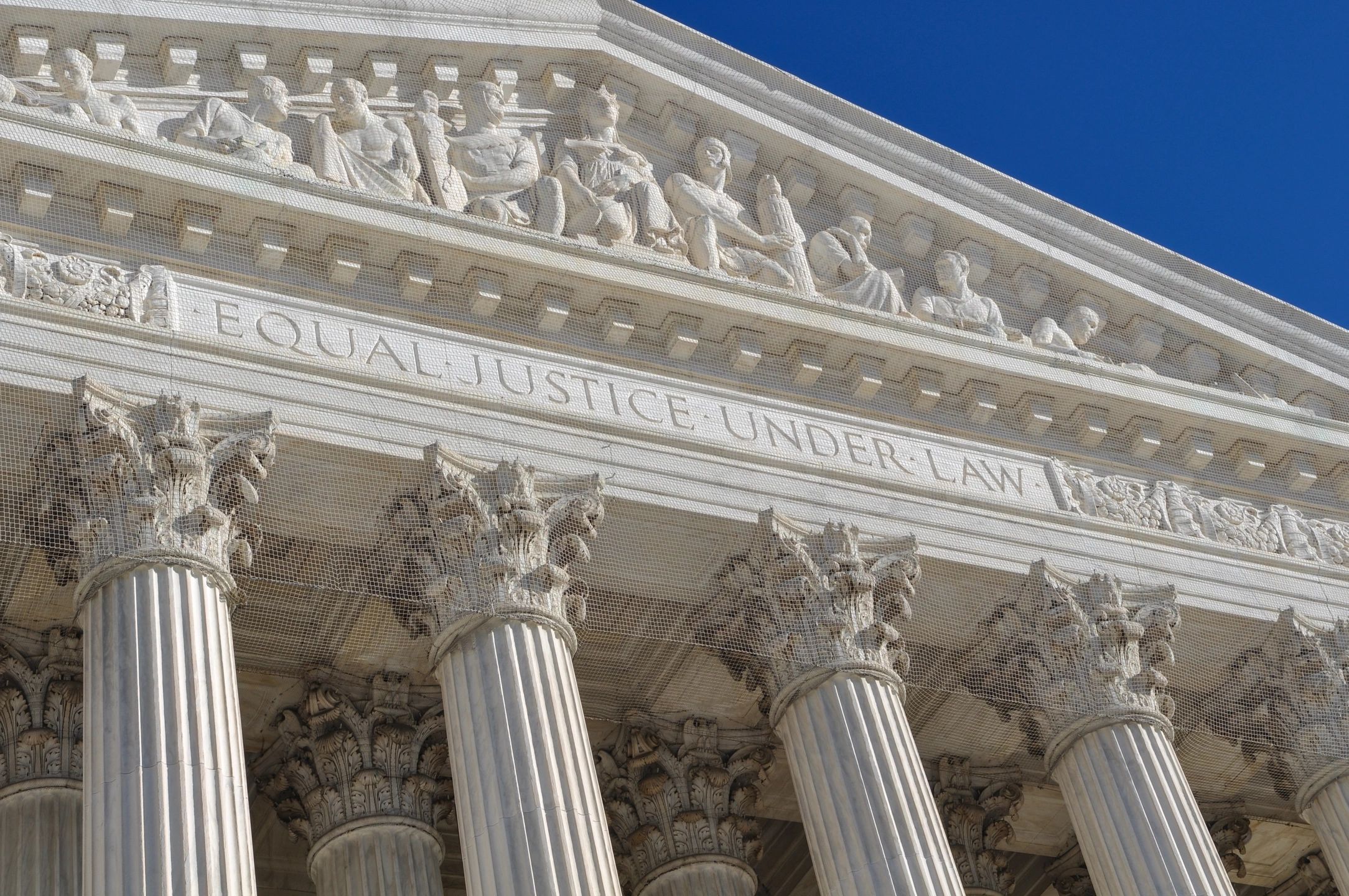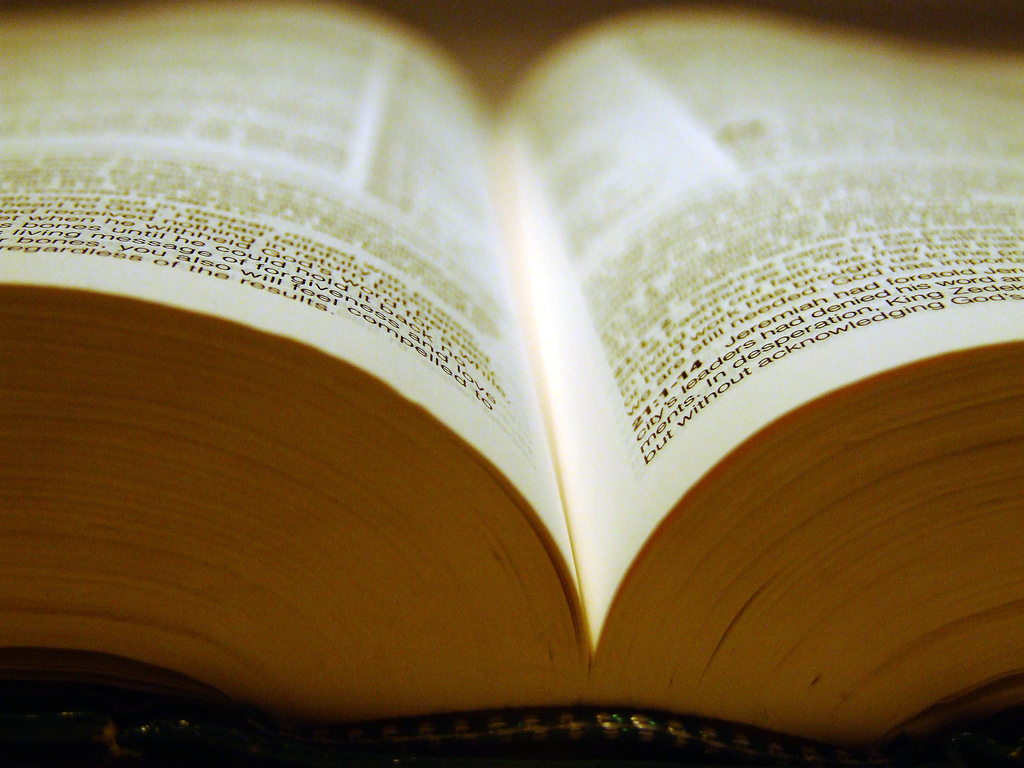If you were to find yourself in court accused of performing an action that you think is morally permissible–good, even–but against which there is a law, how would you react? Most likely, even if everyone in the room thought otherwise, you would think an injustice was being carried out.
Imagine being led from the courtroom to undergo lashing, imprisonment, or even death when in your mind you had done nothing wrong. I’m sure most people’s stomachs would be in a knot. You’d be angry and incensed for good reason. The reason, I suggest, is that legal codes of particular governing authorities are beholden to a higher law.
Now, perhaps you are wrong. Either there is no higher law or you are wrong about what it would say. If there is no higher law, then that feeling of injustice is merely a feeling and nothing more. In which case, justice just is whatever the court decides. If, on the other hand, there is a higher law, but you are wrong about what it would say, then you have a different problem. You might never discover your error and spend your life in prison under the false impression that you have wronged. Or, perhaps, in time, you will realize that the court was right to condemn you. Perhaps you will have a change of heart in prison as you reflect on your actions. This would provide a degree of peace and perhaps even the possibility of a change of life. Many who realize their wrongs from the confines of a cell have turned to the source of that ultimate law and received divine forgiveness, a thing of such value that a temporary stay in a cell can’t diminish.
But perhaps you are right – there is a higher law and the court have violated it. You are unjustly punished, condemned for a good action as if it was bad. “How dare they?” you ask. “Do they not see the injustice of what they have done?” Your sense of injustice is intense and it is justified. It was this sense of injustice that has led heroes to defy authorities, overturn established rules, and defend the cause of righteousness. Martin Luther King exemplifies this kind of reaction:
“A just law is a man made code that squares with the moral law of the law of God. An unjust law is a code that is out of harmony with the moral law. To put it in the terms of St. Thomas Aquinas: An unjust law is a is a human law that is not rooted in eternal and natural law” (Martin Luther King, “Letter from Birmingham Jail,” 1963).
If asked whether laws ought to obeyed, King would say yes, but only if those laws are just laws:
“There are two types of laws: just and unjust. I would be the first to advocate obeying just laws. One has not only a legal but a moral responsibility to obey just laws. Conversely, one has a moral responsibility to disobey unjust laws. I would agree with St. Augustine that ‘an unjust law is no law at all.'”
It was the sense of a higher law that drove many to break segregation laws and precipitated a change not only in the legal system of the United States but also in the hearts of many of its people.
But there are precious few who think this way today. Moral outrage lasts as long as news cycle and always seems to be driven by a political motive, a move to gain power. How so? How do we use the language of MLK and others without any of their accompanying beliefs?
Moral skepticism in the American scene is multifaceted. Its general thesis is, as Oliver Wendall Holmes, that the highest law is “not a brooding omnipresence in the sky, but the articulate voice of some sovereign or quasi sovereign that can be identified.” What ultimately decides your case is not a higher law, but merely the facts of your case and the legal experience of judges. Constitutions, for moral skeptics, are not truths about your nature and rights, but experiments to be tested by experience.
Marxist legal theorists propose that law is a reflection of the ideas produced by economic conditions. Dominant ideologies set the rules and the oppressed classes live under them. Crucially, a Marxist revolution does not appeal to a higher law for their agenda. Instead, the aim is to overturn what they perceive as the dominant (and capitalist-favoring) legal system. Marx (and Lenin) thought that law would ultimately wither away when communism had been established. To get to this stage, however, a stage of totalitarian rule (by the proletariat) was required.
The same style of moral skepticism is found in many other critical legal theories. Laws reflect dominant interests thus legalizing inequality. The law is not a reflection of a higher law but only a means for adjusting outcomes. If you are in court, you might be there because you got in the way and not because you did anything actually wrong (in the moral sense).
Other legal theorists treat law as the means to create societies. What matters is not whether a rule reflects a higher law but whether it reflects the majority view of a culture. It is vital to society that everyone agrees on what is good and bad. Thus, if the morals of a culture change, then so should its laws. Since the laws only reflect majority opinion, the law does not have any reference to a higher law. If you are in court, you may be there because you find yourself out of step with the majority view.
The problem with moral skepticism is its lack of the right fuel. When justice is no higher than a legislative body, then the only fuel left is the déteste du jour.
Christians have often ended up in court accused of violations of the law. The Bible is replete with stories of the innocent suffering for a so-called crime. Indeed, the Messiah himself is tried and executed without having committed a single immoral action. Christians are often incensed by injustices done to others. Criminals who get away with it, laws permitting the killing of the unborn, and legal pronouncements given to maintain the status quo no matter how wrong it is all keep us up in the night, provoking prayers like David’s:
“The times of ignorance God overlooked, but now he commands all people everywhere to repent, because he has fixed a day on which he will judge the world in righteousness by a man whom he has appointed; and of this he has given assurance to all by raising him from the dead” (Acts 17:30-31).
According to Paul, the resurrection of Christ serves as a sign to all those unjustly imprisoned, those whose lives were snuffed out unjustly but ‘legally’, and those whose prayers penetrate the dark night. It is a sign that Christ is coming to judge the world. It is also a warning to all of us: that nagging suspicion that there is a higher law is not mere theory but has an executive branch, one who will ultimately enforce his law. Lest we be the recipients of his final judgement, Paul exhorts his hearers to repent, turn to Christ for forgiveness, trusting in his accomplishments on the cross, relying not on our own moral purity but on God’s undeserved favor on repentant sinners such as we.




